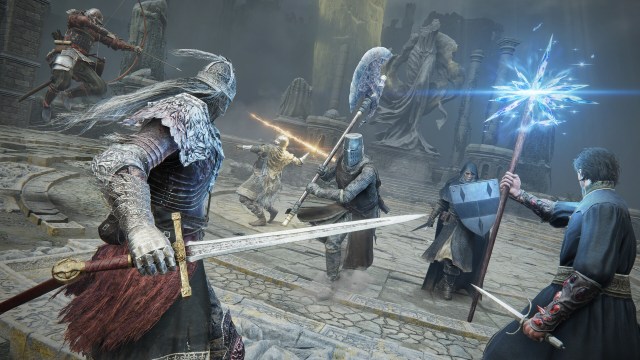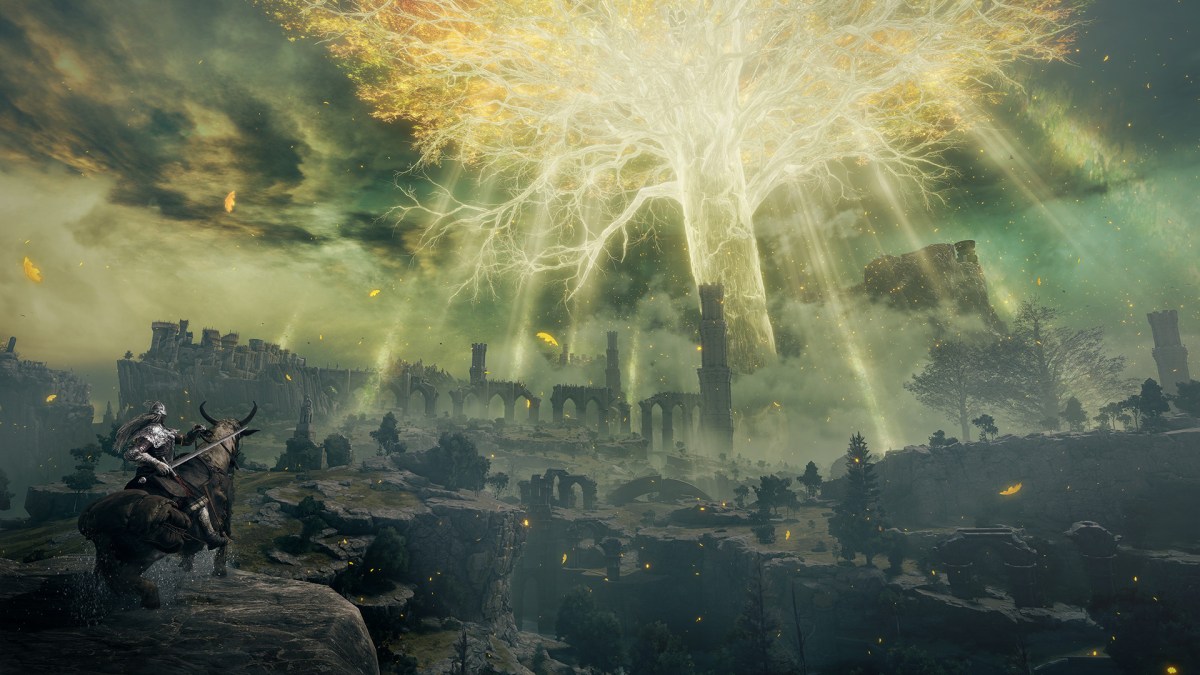There are basically two schools of thought
Do you wonder if The Game Awards are fair? Try asking a Xenoblade Chronicles fan.
Every year, The Game Awards come and go with some measure of controversy. For many category winners, the gaming community throws accusations of an anti-anime bias or a preference towards publishers with the most money. Other times, the community will wonder why games like Sifu wind up in categories like “Best Fighting Game.” No matter what game wins each category, there is rarely a universal consensus that the pick makes sense. Even a category like “Best Community Support” draws ire from fans.
It’s easy to look at this and say “gamers, am I right?” Except these issues exist across all awards shows. In 2019, Green Book faced scrutiny for winning the Oscar for Best Picture. In 2017, Adele felt that Beyoncé deserved the Grammy for album of the year. I could fill this entire article listing the controversies of awards shows, but to cut it short, the Game Awards follow these decades-long traditions. Yet even if these awards shows were free of controversies, it would be foolish to assume any committee had the capacity to definitively decide the “best” work of a year. In fact, the notion of an “objective best” work is flawed no matter how you slice it, even in the highest circles of academia.

School gave us the wrong idea
I don’t fault anyone for thinking a game or a movie can objectively be the best. In our formative years, school exposes us to works that are considered classics. We are told that Shakespeare, Poe, and Orwell are historically important authors who wrote some of the greatest works of all time. This isn’t necessarily wrong, but it starts many people on the wrong foot when it comes to media criticism.
The truth is, the people who decided Shakespeare should be taught in school until the end of time didn’t follow a clear criteria. Those choices are the result of many people who spent their lives studying the arts and deciding these works were more significant than others. This isn’t a random decision, of course. Scholars argue for a work’s themes, timelessness, and depth when they recommend it to be taught academically. Yet these aren’t objective, absolute qualities either. The first result for “Is Shakespeare better than Milton?” on Google is a two-hour-long debate video.
This gets more complicated when we discuss video games. Books and movies are linear, but even Super Mario Bros. is dramatically different depending on the player’s skill level. I mean, imagine if 10 critics saw Franco Zeffirelli’s version of Romeo and Juliet and discussed it with 10 critics who saw Baz Luhrmann’s version. Both are technically the same source but play out with substantial differences. Video games are captivating because they are tailored to our personal experiences, but this makes it inherently harder to compare video games by their “objective” qualities. In fact, the way we pick video games to play is rarely objective.

There’s no accounting for taste. Seriously.
Let’s do a little thought experiment. Not taking existing libraries or price into account, think of the games you’d give to your two closest friends. Now think of a game that you’d want to give to a young child who primarily plays mobile games. Finally, think of a game you’d give to an older family member who has never played a video game. Notice how all your answers weren’t Elden Ring.
Or, if they were all Elden Ring, hi Hidetaka Miyazaki! Thank you for reading Destructoid.
In real life, we recommend games to people based on their personal tastes. While it’s tempting to use review aggregates to judge a work’s “objective” quality, this introduces all sorts of conundrums. Is Toy Story 2 a better movie than Everything Everywhere All At Once? Is Final Fantasy XIII a better game than God Hand? Scores and awards give a general idea of a work’s quality, but they are not definitive by any means. Therefore, our best move is to take several opinions into account and decide which games will resonate with us.
Whether you’re reading professional reviews or opinions on message boards, a greater diversity of critics helps you find voices that match yours. As much as I meme on our 6.5 score for A Link Between Worlds, it’s important for those opinions to be vocalized. The industry would stagnate if we collectively concluded that games like Breath of the Wild are indisputable 10/10s with no exceptions. Heck, I checked out Tony Hawk’s Pro Skater because of glowing reviews from people who didn’t like sports games. Now I have Superman by Goldfinger on my phone to this day.
There is no way to crown one game as “Game of the Year” without someone disagreeing, and that’s perfectly okay. It’s freeing to realize that scores and awards are suggestions at the end of the day. By getting past this hurdle, we can ground our opinions in our passion for the games we like instead of disdain for people we disagree with.

That’s just like, your opinion, man
Don’t get me wrong, I’m not arguing for review nihilism here. As a community, we can come to a consensus that Elden Ring is generally better than Bad Rats. I also totally understand why it’s upsetting when your favorite game doesn’t win an award. We naturally want to share our positive experiences with others, and few feelings are more validating than seeing a thing you love receive a great score or an award on a streaming service.
It’s nearly impossible to tell which games will be timeless when they come out. Who knew that a game that sold so poorly like Earthbound would be a massive cult classic? Or maybe Donkey Kong Country didn’t become the game of the decade as one hilarious reviewer thought. To me, awards are more helpful as a general reference point than a conclusive mark of quality. If someone looks up “Game of the Year 2022” and sees all the winners and candidates across multiple sources, they’ll have a good idea of which games they should check out. Is this all-inclusive? Absolutely not. But it does approach a consensus, which is the best we can hope for.
In short, we’re all involved in an ongoing conversation for what games should and should not deserve a place in history. Just as those old scholars sat around wondering if you should read The Catcher in the Rye in school, we have the same discussions within the weird confines of the internet. No matter how hard we’ll try, we’ll never agree on a universal best game of the year, let alone of all time. Yet we’ll occasionally find common ground with those who share our tastes and learn about some other good games we’ve missed, and really, that’s the best we can hope for.
So go, tell people that your favorite Mario game is Sunshine or your favorite Zelda game is Link’s Awakening. That’s right, this was all an elaborate ruse to justify my pick for the best Zelda title. I make no apologies for this bamboozlement.





Published: Dec 22, 2022 04:00 pm